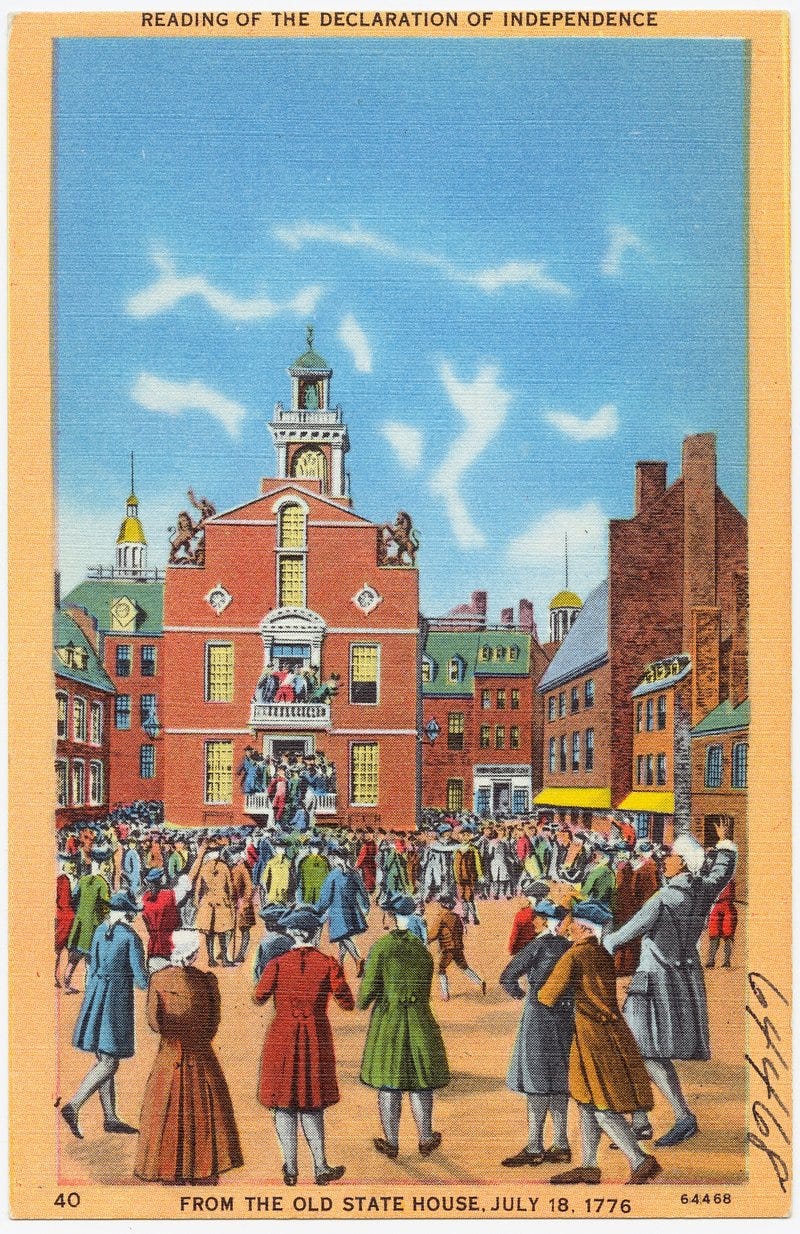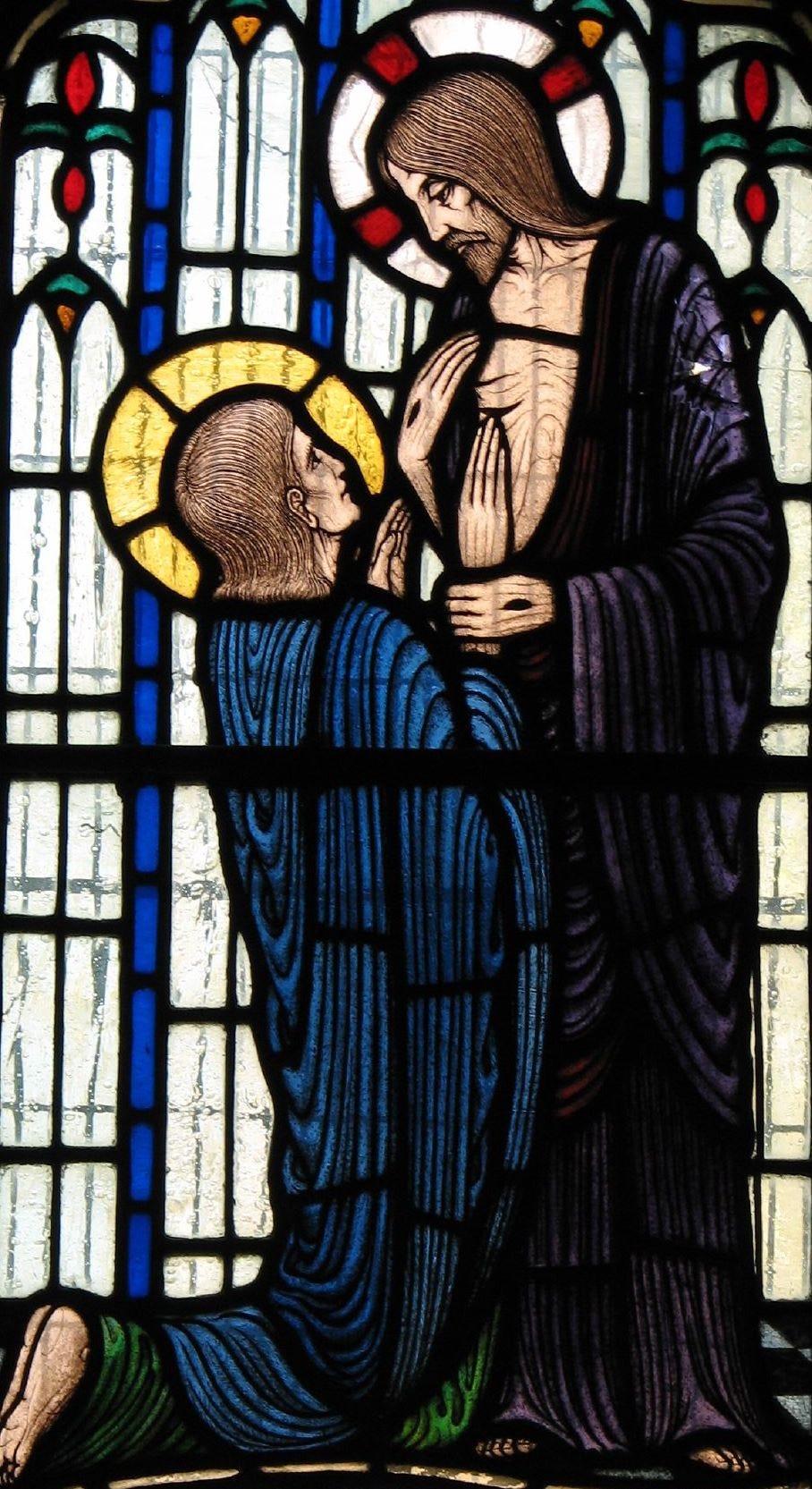On God Being Real
Americanism & Genuine Christian Nationalism
For the American conservatives, I observe a contradiction. In one breath, they are eager to identify themselves as Christians but in the next will be hesitant to refer to God’s authority for their actions. This serves a break in continuity for conservatives of old to now and fails to service not only the political aims of the conservative, but even endangers one's own soul that has been colonized by rebellious speech.
The Declaration of Independence of the thirteen united states of America begins its justification for severing its political bonds to Great Britain not by listing its grievances but by framing ontologically the ordering of Man’s societies in its relationship to God. Their arguments are framed in the tradition of John Locke, himself originally seeking to explain how the Glorious Revolution that ousted the Stuart Dynasty of Britain could be justified. They “with a firm reliance on the protection of divine Providence” and “appealing to the Supreme Judge of the world for the rectitude of [their] intentions” declare their independence. This they may do because “they are endowed by their Creator with certain unalienable Rights” that governments exist to sustain and lose legitimacy when they violate.
Much already has been written on Lockeanism itself, but for such a sacred text for the American identity, I think it's worth noting its own hesitations. In no circumstance is any explicitly Christian identity invoked. Only “Creator, Providence, Supreme Judge, and Nature’s God” are utilized even among members of an empire that to-this-day maintains an official Christian religion and anoints its Monarch to rule by the grace of God in true trinitarian form. What we observe in the Declaration of Independence is even while conceding certain Christian truths, it would not name Jesus, or the Father, or the Holy Spirit. Some of these states maintained official religions after the Constitution’s implementation and only abolished them as political pressures built to remove them to align their states with the Constitution’s First Amendment to prohibit any establishment of a state religion, such as was the case in Great Britain.
From the inception of the United States, a movement to disestablish Christianity exerted its influence to prevent the religious American people from creating a religious society at all. Post-revolutionary period, the insidiousness of deistic representations of God were observed as obstacles to extending Christendom into society and reform movements worked to undo it, the most successful being the National Reform Association in the American Civil War that campaigned to modify the preamble of the United States Constitution to refer to Jesus by name and institute a “Christian government” so that the higher callings of Christianity be favored over America’s secularized, liberal roots. It was in this period the motto “In God We Trust” began to be added to American currency, though the movement would get no further.
The American regime successfully discourages Christianity. The American mediums of referring to God are in appeals to founding documents that decline to name Him and a token on currency added precisely in protest of the American founding creed they found lacking. Thomas Jefferson’s oft-debated “separation of Church and State” slogan is taken to be the First Amendment’s proper interpretation because in action and intention, it is. It is natural, then, for the American conservative to act as if God does not exist.
There have always been Christians that care little for the Christian creed and its tenets, or are otherwise ignorant of what their Church teaches. Now, however, once-Christian nations do not honor their religion nor appeal to its authority. The “Nature’s God” of the Declaration is a deist god, who set forth natural laws that are observable truths and I would agree there is much truth that is self-evident, but the deist god is a god who is otherwise unknown to humanity. He is unnamable because he has no personal relationship with his creation. There are no sacred signs or stories attributable to the deist god, and therefore no lessons to learn from him. Even in Locke’s own tradition, the origin of humanity spawning in nature as a raw individual resembles more a version of Genesis where Adam spawns from clay and Even from his rib and proceed to walk from Eden and form a commonwealth than the true Genesis story, where Adam is breathed into life by God and Eve created by God from taking Adam's rib to be forever joined together–only to be cast from Eden when they rebel and take upon themselves the attempt to act as if they were God and decide Good & Evil. The implications here are vastly different as to Man’s innate nature and relationship to each other and their creator. Just so are the implications vastly different being the deistic god of the Founders to the God of the Scriptures.
So, then, if the American conservative seeks to resist the regime at all, it must be by boldly invoking God the way his ancestors once did. They should hope by the Grace of God, they should rejoice because of the favor of God, they should Love because of the Love of God, and they should defer to the Wisdom of God. When asked why men suffer, they should say because of the corruption of Sin. When asked how one could oppose some moral issue like polygamy, they ought to say because it is an abomination to God. But this is less for persuading others as it is the preservation of one's own Conservatism to its proper order: by remembering God’s supreme authority in a real way, not the way the Declaration stated.
Many, clouded in Sin, revolt against God. Their justifications for doing so never invoke God as they see humanity as emerging from nature to form societies. It’s purely materialist and corruption reeks from it. They would say “we the majority support X” if they are simple, unable to think beyond the power mechanics of a democracy (which the regime upholds as sacred, the American conservative should question why). They would say “here is how our principle of bodily autonomy upholds my view” if they are more clever, though even if rebuffed from their starting framework they will always fall back to the real truth: their sin. They would say “we cannot give up abortion because, in fact, these pregnancies get in the way of my immediate goals.” It is important for the American conservative to realize that all these alternative structures of mankind that dance around Jesus only serve to justify rebellion against Him. As such, one must not be hesitant to answer the Pontius Pilates of the world when asked “what is truth?” At the core of real politics is what your answer to that question is, and so you must be prepared to give your answer: that you know God, by His name, is real.






To answer Pilate’s question honestly would require a person to address their behavior, sins and shortcomings directly and accept accountability for them. Most people will do almost anything to avoid that.
To name the Lord as our inspiration is risky business, from a contemporary human-political point of view. Witness the recent antagonism from the vitalists, some of Christianity's most influential potential allies on the right. That's no cause for cowardice, though; "fear not!" God tells his people over and over.